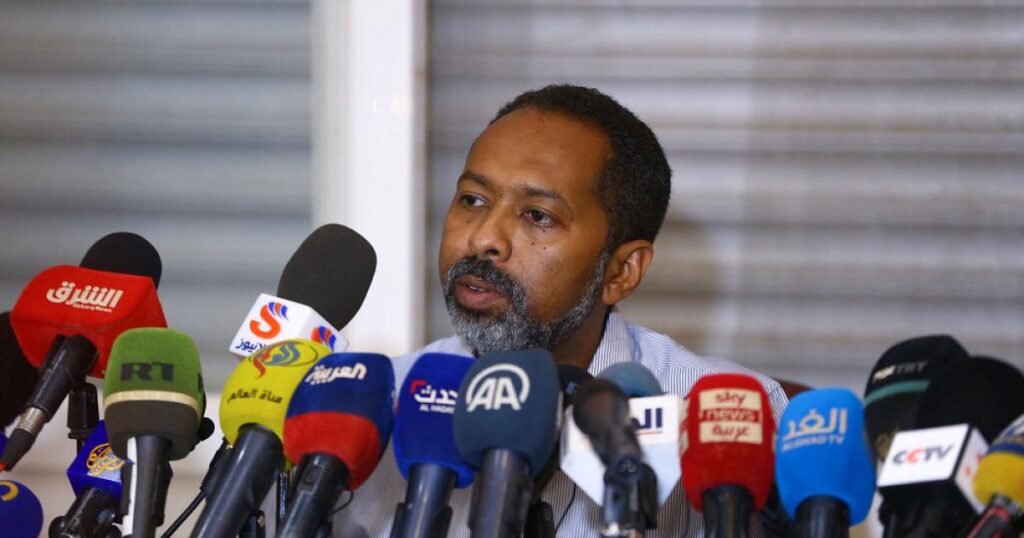Khartoum – After intensifying efforts to break the 11-month deadlock between the army that rules the nation and the forces supporting democracy, the main political coalition in Sudan today presented its vision of an authority that is fully led by civilians to lead the transitional period before the elections.
In 2021, a military coup ended a partnership to share power between the army and the Coalition of Freedom and Change, and led to the departure of the transitional period from its course, which drowned the country in political and economic turmoil.
The army has not yet been able to name the prime minister as the anniversary of the coup led by Abdel Fattah Al-Burhan, the head of the Sovereign Council, approaches.
But the army leaders said this summer that they intend to get out of the political scene, while the leaders of the Freedom Forces and change reported that they were informed that the army agreed to a draft constitution presented by the Sudanese Bar Association that would allow a civil rule.
The coalition’s view of what it will look for in any future arrangement with military rulers was laid out in a statement by the forces of freedom and change.
Protest groups, the transitional government, rebel organisations that stayed in power after the coup, political parties from outside the forces of freedom and change who took part in crafting the draught constitution, federations, and protest groups are likely to condemn any suggestion.
Resistance groups or parties that were affiliated with the National Congress Party, the isolated party of President Omar al-Bashir, were not welcomed into the ongoing struggle against military rule by the resistance committees, which also opposed negotiations or power-sharing with the army.
Under the vision of the forces of freedom and change, the army will come out of the political scene and the Council of Ministers, while the Sovereign Council, which represented the head of the state, will be fully composed of civilian figures chosen by the revolutionary forces.
The National Congress Party will be excluded from the transitional parliament, according to the coalition, and this policy will last for up to two years before the elections.
According to the Freedom and Change Forces, the deal will also permit the security sector’s reform and the creation of the “Security and Defense Council,” which will be presided over by the prime minister and comprise representatives of the army and other security-related entities.
The Forces of Freedom and Change previously decried the arrest of Wajdi Saleh, a member of the leadership, in a statement that was released yesterday, Sunday. She said that only political motivations led to his detention.
Sudan is grappling with a financial crisis that has been made worse by the country’s political impasse. In order to receive funding from foreign donors, a political solution to the problem is needed, which calls for the implementation of tough reforms and a shift back toward democracy.
“Freedom and change” demands that the transitional period be led by pure civic authority.

